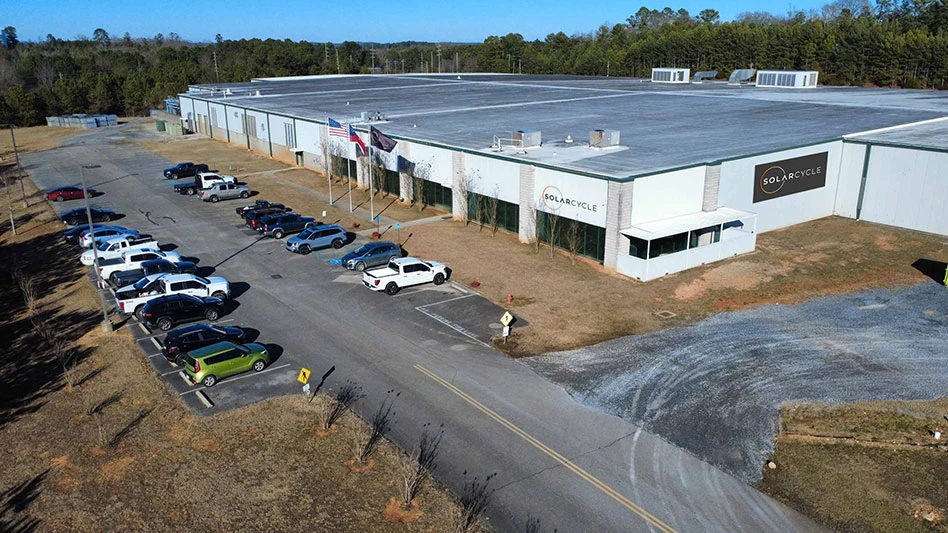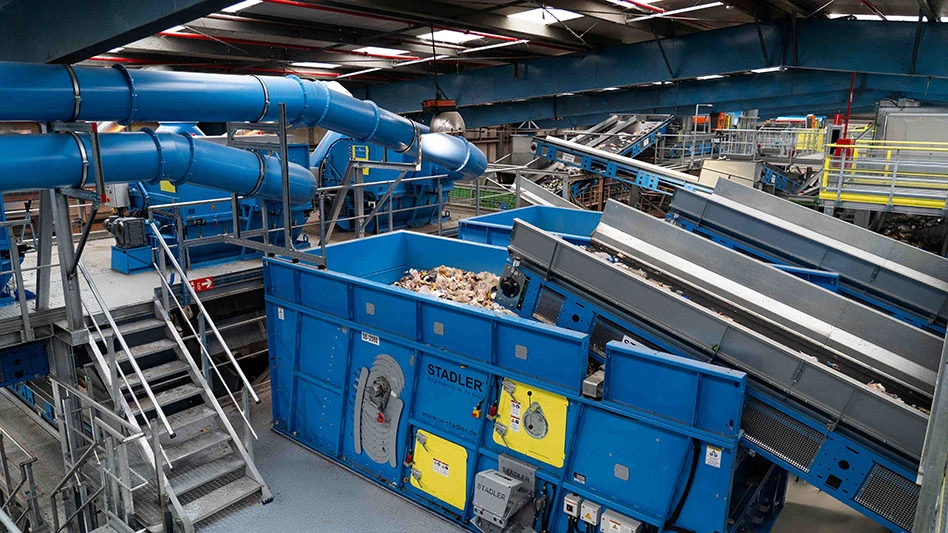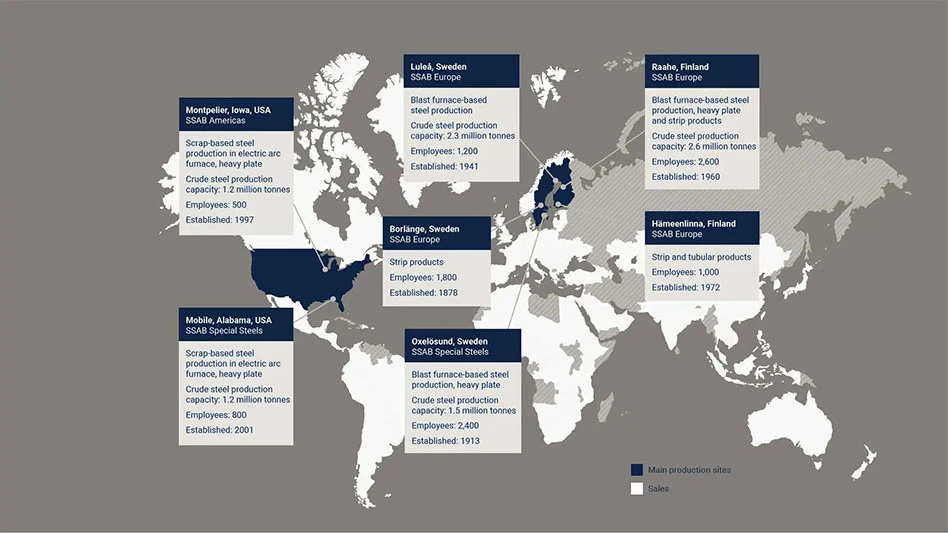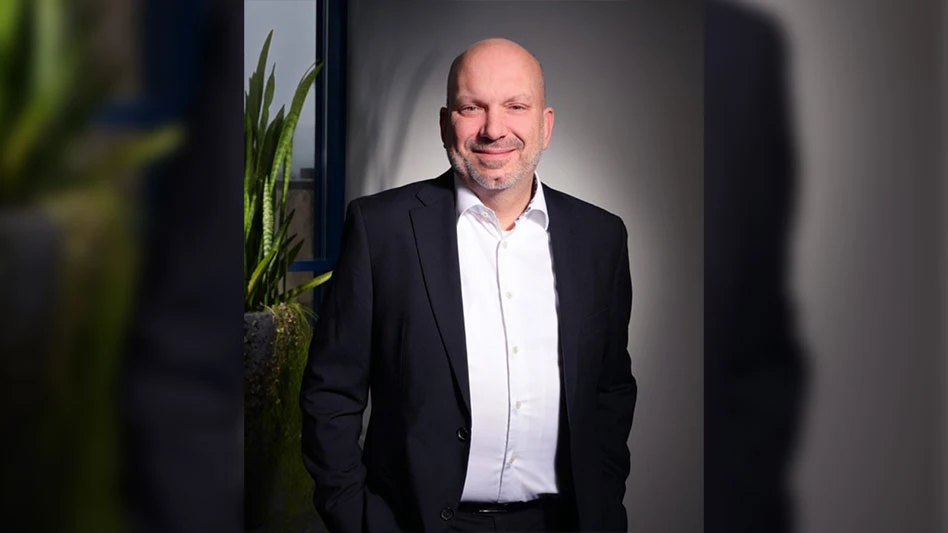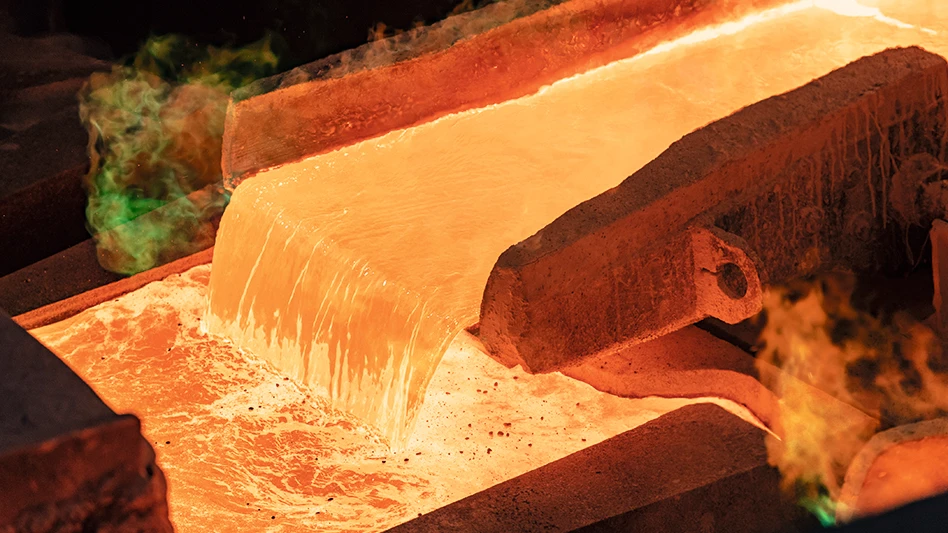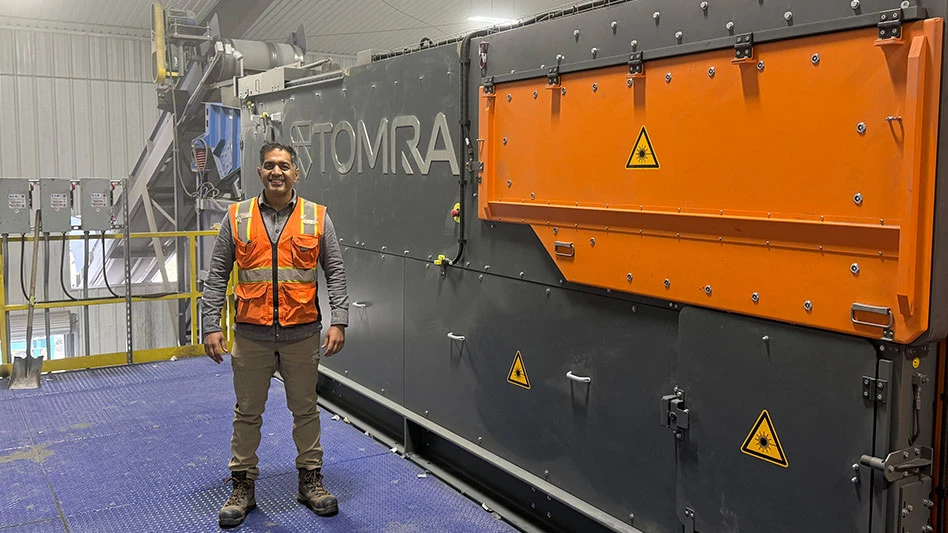
Photo courtesy of EMR Ltd.
The Recovas consortium—a collaboration led by United Kingdom-based metals recycler EMR Ltd.—says it successfully has completed its four-year project to build up the knowledge, technology and skills needed to develop the U.K.’s first circular economy for end-of-life electric vehicle (EV) batteries.
The project brought together car manufacturers, recyclers, academics and other industry participants to form a blueprint for how the U.K. can sustainably manage the growing volume of EV batteries reaching the end of their useful life.
RELATED: EMR partners with automakers to recycle EV batteries
EMR says the project’s final event took place May 7 at its new battery recycling facility in Birmingham, England. The project was funded by the Advanced Propulsion Centre (APC) that launched in November 2020.
“EMR is extremely proud to have led the Recovas consortium—a project which has propelled U.K. EV battery recycling from concept into reality in just four years,” says Alexander Thompson, innovation project manager at EMR. “By focusing on a range of challenges and opportunities associated with this technology, companies in the recycling, automotive and energy sectors have highlighted the huge progress that can be made when we work together. While Recovas has ended, its legacy continues in partnerships which will continue to benefit this growing industry in the years and decades ahead.”
EMR says that, from its inception, Recovas set out to tackle the challenge of creating a circular economy for EV batteries, maximizing their life cycle through reuse, remanufacturing and recycling. Following more than four years of work, the consortium says a functioning circular supply chain has been established along with other objectives that will contribute to EV battery circularity at different stages. According to the group, key achievements include:
- EMR making a multimillion-pound investment into its Birmingham facility, which the company says is capable of processing 2,000 tons of EV batteries per year, creating 14 full-time jobs.
- Automakers BMW, Jaguar, Land Rover and Bentley developing guidance for the entire automotive supply chain to ensure the next generation of EVs are designed with reuse, remanufacturing and recycling in mind.
- Autocraft Drivetrain Solutions developing a mobile triaging unit, a remanufacturing unit and a battery testing process that efficiently and safely can assess and repair end-of-life EV batteries.
- Connected Energy establishing a strong business case for utility-scale energy storage repurposing second-life EV batteries.
- WMG at The University of Warwick researching the recovery of lithium and other critical metals from black mass, as well as developing expertise in cell-level rapid triaging.
- The U.K. Battery Industrialisation Centre (UKBIC) developing life cycle analysis and economic assessments.
- Health & Safety Executive (HSE) Science researching the risks posed by the hazardous materials released while shredding EV batteries, in addition to offering support to all project partners on current battery handling operations.
Consortium members say collaborations are set to continue despite the end of the project.
“Recovas has demonstrated the power of academic and industry collaboration in tackling some of the biggest challenges facing the transition to electric vehicles,” Prof. David Greenwood, director for industrial engagement, WMG at The University of Warwick, says. “Our research into the recovery of critical materials from EV batteries and the safe handling of battery materials has provided vital knowledge to support a truly circular battery economy. We’re proud to have played a role in shaping technologies and practices that will make EVs more sustainable in years to come.”
Aishwarya Chougule, CAD Engineer at the UKBIC, says, "Our involvement as part of the Recovas project, where we've developed environmental and economic models to assess the full lifecycle impact of battery packs, has been an invaluable learning experience for both us and the consortium. These models span every stage, taking a ‘cradle-to-cradle’ approach.
“This means not only from raw material extraction to cell and battery pack production but also extends in exploring the triage of recycling, reuse and repair. Providing manufacturers with data on the environmental impact of their battery production processes and beyond is essential to driving a more circular and sustainable approach to battery development and industrialization within the U.K."
On May 1, Recovas won the 2025 Resource and Waste Management Partnership of the Year at the LetsRecycle.com Awards for Excellence. EMR says the award aims to recognize the “power of collective efforts in driving sustainable practices, fostering a circular economy and achieving measurable environmental benefits.”
Latest from Recycling Today
- Flexible Film Recycling Alliance report outlines progress
- RERF opens Avagliano award nominations
- Eriez expands European sales network
- Gränges increases sales volume in 2025
- Aduro selects Netherlands as site for industrial scale-up facility
- Nasco-Op declares dividend
- Cyclic Materials announces plans for South Carolina campus
- WM reports revenue, earnings growth in Q4 and full-year 2025
